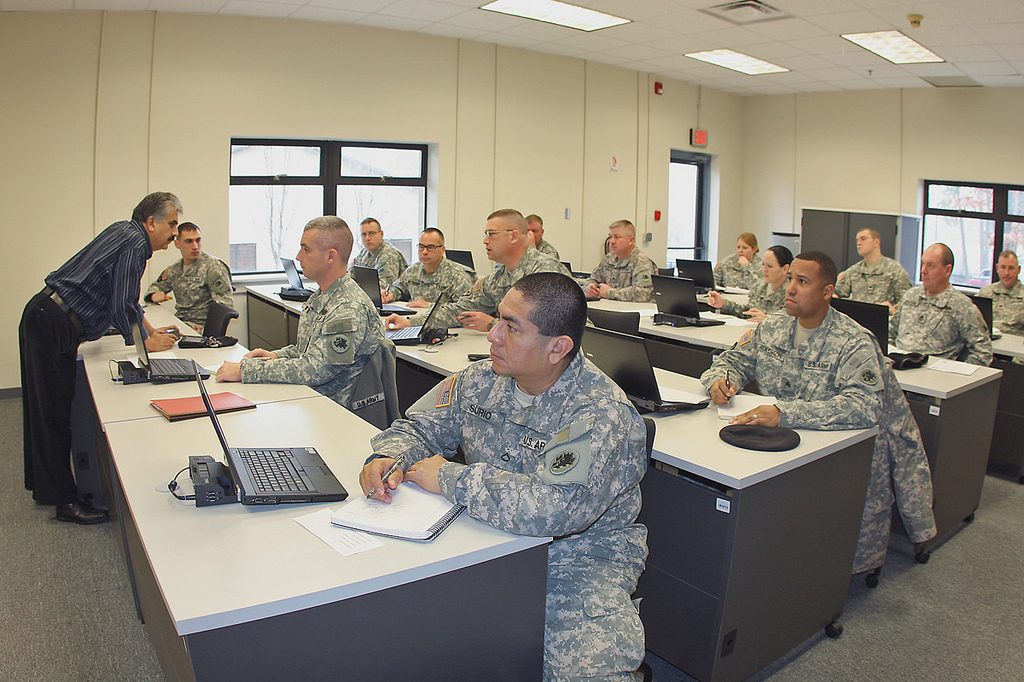Transforming the Economics of Language Learning (Part 1) Posted by Transparent Language on Jan 21, 2015 in Archived Posts
Learning another language for professional purposes takes too long and costs too much.
For many recreational learners, the economics, logistics and reliability of acquiring another language are not all that important. For them, the joy is in the journey, and concepts such as time to proficiency, reliability of outcome, or the availability of personnel for operations are not front of mind.
It’s different when individuals or organizations need better language capability to address military, diplomatic, commercial, medical or similar professional requirements. Suddenly the economics are critical. The more disruptive and costly something is, the less it can be used. Imagine that someone is removed from their normal job and sent to a schoolhouse somewhere for language training. Add up expenses for travel, facility, teachers and administrators, student food and lodging. Add to that the estimated dollar value of the disruption to operations because that person is now unavailable to do his or her job.
A two-week training course, typical for many professional skills, is expensive enough, but developing language proficiency takes much, much longer. Beyond the beginner levels, even two more months of training moves the needle only slightly.
America’s success in defense, commerce, security and diplomacy is not optional, and it is widely recognized that to succeed the US needs much better language skills. Unfortunately however, the US is infamously not very language-capable–it’s hard to hire the needed language skills–and budgets are tight.
The only practical solution is to train languages much faster, more compellingly, and more reliably. As Dr. Richard Brecht, founder of our national research lab for language put it, “Train in half the time.” And train with certainty. Don’t let skills fall off after training. At Transparent Language, we’ve made that our mission. We serve many types of customers, including libraries, schools, and corporations, and we love anyone who loves language learning or teaching. But our primary mission is supporting “language transformation” in the most stringent and rigorous language training schools and programs in the US Government.
Smart people have been teaching and learning languages for centuries, so is there any hope that all of a sudden we will be able to “train in half the time,” more reliably, more visibly, more enjoyably, and with less fall-off after training? Surprisingly, the answer is “unequivocally, yes.” Emerging technology makes it possible. Finding one’s way around was revolutionized almost overnight by GPS and mobile devices, and that same degree of change is now available to language learning and teaching, including for less-common languages and for language for specialized professional purposes.
Technology is not the total solution; it’s just the new ingredient in the mix. It’s true you can get better at a language without any technology, or with only technology, but we have found that the best answer by far is blending human instruction or coaching with emerging technology, using each for what each does best. Technology can:
- execute some aspects of instruction faster and more reliably than human instructors
- beneficially shift the time or place that work is done
- drive user engagement with progress and game dynamics
- bring dispersed people together
- seamlessly incorporate current, culturally rich authentic materials
- make under-utilized “stovepiped” content archives more useful and accessible
- make user time on task and progress significantly more visible and reportable to administrators
And–important for our customers and purposes–this is true not only for general proficiency in the most common languages, but for every different course of instruction, specialized domains, and for less-common and under-supported languages.
In Part 2, we’ll discuss why technology itself isn’t the answer, and why it is important to choose the right technology.

Build vocabulary, practice pronunciation, and more with Transparent Language Online. Available anytime, anywhere, on any device.





Comments:
AZHAR BIN MOHD ARIFFIN:
Please be informed with immediate effect i did not want to continue the online Tagalog language course . Please do not charged the said amount on my credit card in future. Thank you.
meaghan:
@AZHAR BIN MOHD ARIFFIN Hi Azhar. I’ve checked on your account status and your account has been successfully cancelled, so you should not see any additional charges. Thanks for learning with us!